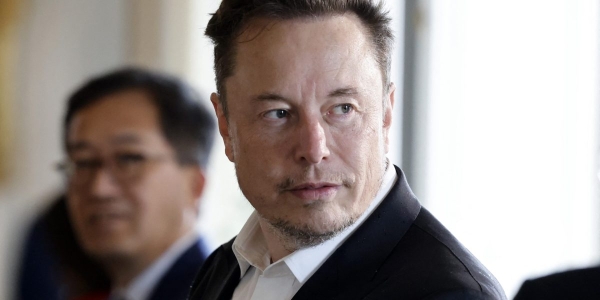
Higher borrowing costs and the ongoing turmoil at U.S. regional banks is set to end the pandemic boom that lifted Tesla to the top of the global auto industry.
Speaking to shareholders at the company’s annual general meeting held at its Austin factory, CEO Elon Musk said rising interest rate payments were making it difficult to move the estimated $100 billion worth of goods he’s producing this year.
The flow of affordable credit in the economy has been gummed up by multiple Federal Reserve hikes and the collapse of lenders like SVB and First Republic. Since Tesla doesn’t have a captive financing arm like many of its automotive competitors, Musk’s customers will need to find another source for loans—like the regional banks distracted by the current crisis.
“If they’re on their way to the cemetery, increasing their auto loan portfolio is not the first thing on their mind,” Musk said on Tuesday. “So this is going to be a challenging 12 months, I want to be sort of realistic about it.”
Two years ago there didn’t seem to be a price customers were not willing to pay to get their hands on a Tesla Model Y. It became so bad Tesla had to keep hiking prices just to keep their backlog of cars on order manageable and not bursting at the seams.
But the addition of two new manufacturing plants, one near Berlin and another in Texas, alongside further capacity expansion in Fremont and Shanghai has meant that production has finally caught up to demand and inventories of unsold Teslas are beginning to build just when the economy is slowing down. Musk is now even thinking about experimenting in advertising, a novum in the company’s history.
“Tesla is not immune to the global economic environment,” Musk continued. “I want to make sure that this is not just the good news parade, it’s important to understand no company is immune.”
But Tesla isn’t your average everyday corporation.
Two new next-gen cars predicted to more than triple Tesla’s annual volume
Tesla is worth well over half a trillion dollars, nearly as much as the next five most valuable carmakers combined—including China’s own homebred EV leader BYD. Moreover Musk has set himself the goal of Tesla hitting a market cap roughly double the $2.7 trillion of Apple.
Tim Cook’s company meanwhile appears to be largely impervious to the economic cycle. Quarter after quarter it churns out reliable earnings growth thanks to its seamless iOS operating system that keeps customers locked in his ecosystem across various platforms—whether it’s the MacBook, iPad or its crown jewel, the iPhone.
But Musk wouldn’t be the salesman he is if he didn’t offer the promise of near infinite growth to his devoted investors, who stuck with him through the years when Tesla was the scrappy underdog.
First off, he teased the arrival of two new models based on Tesla’s next-generation platform—widely believed to be a dedicated robotaxi and a compact car. Together, their combined annual volume could reach in excess of 5 million vehicles, Musk estimated. That would more than triple Tesla’s size from the 1.8 million units forecast for this year—even when including the estimated incremental 250,000 Cybertrucks Musk believes he will eventually sell per annum once the vehicle launches later this year.
Moreover, once his Full Self-Driving (FSD) software achieves its stated target of unsupervised autonomy and is pushed out to the fleet via airdrop, Musk predicts his cars will become five times more productive, and therefore valuable, overnight. That is because they will be able to drive around 50 hours or more per week, up from only around 10-12 currently.
He estimated this could potentially lift the gross margin his car business earns from around 20% currently to a staggering 80%, thanks to the sale of accompanying FSD software.
Completing FSD to be Tesla’s own ‘ChatGPT moment’
“Being able to do a software update and have several million cars suddenly go from manual driving to autonomous I think will be the single biggest asset value increase in history,” said Musk.
In an interview with CNBC immediately following Tuesday’s meeting, he predicted this “ChatGPT moment” would happen at the latest in 2024.
Investors however have become wary of his repeated promises that full autonomy was just around the corner, and the only evidence Musk produced was the belief that unsupervised driving would exceed the expertise of a human later this year—and that was primarily based on his own anecdotal experience driving through San Francisco and Austin.
“I’m actually surprised that so few people realize this or maybe they just don’t believe it’s real, but it is. This is really an insanely big deal,” he told the audience of Tesla faithful, who didn’t seem to believe it either; shareholders remained notably quiet despite his effort to fire them up.
In Musk’s view, FSD is not only important for his cars but his Optimus humanoid robot under development, as the robots will be equipped with the same artificial intelligence. On top of the 80% gross margins from his car business, he estimates the global cumulative market could be 10 billion to potentially even 20 billion droids—in other words, one or two for each human on the planet.
But first Tesla has to emerge from the current downturn.
“My best guess is that the global economy turns around in roughly 12 months,” Musk predicted, “and then Tesla will be in an extremely good position.”







